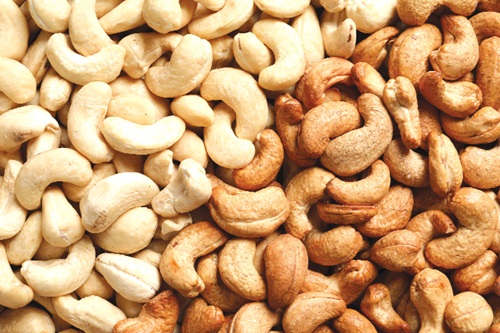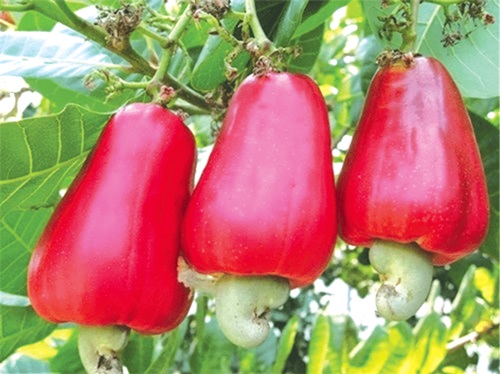
From afforestation to cash crop: Potential of cashew as a leading foreign exchange earner
From an afforestation crop in the past, cashew, in recent times, is gradually making its way into the list of crops in the country with the potential of bringing in foreign exchange, reducing poverty and boosting rural development.
Advertisement
The production levels of the crop over the last three years have significantly increased. For instance, in 2021, Ghana produced 170,000 tonnes. In 2022, the production increased to 200,000 and went up to 230,000 tonnes in 2023, representing an increase of 30,000 tonnes annually.
This annual increment will go up further, with the announcement that the government is committed to investing $60 million in the cashew sector, including processing, of which 70 per cent will be invested in building factories in the cashew catchment areas.
Cashew, with the potential of being the future crop for Ghana, is a strategic crop for us as a country because it thrives very well in eight out of the 16 regions of the country.
Processing
As the production increases, we do not have to suffer the fate of cocoa, where the majority of the crop is exported in its raw form to countries which do not grow the crop, to process and return it to us at such an exorbitant price.
In every production, the processing point is where the cash is and so, it is refreshing to know that as cashew production increases, the country has plans to step up with the processing aspect. Unfortunately, only 10 per cent of the crop is processed in the country, while the rest is exported in its raw form.
The Chief Executive of the Tree Crops Development Authority (TCDA), William Agyapong Quaittoo, was recently quoted as saying that the country intended to increase cashew processing from 10 per cent to 50 per cent by the end of the sixth year.
He was also quoted as urging Ghanaians to promote the initiative and ensure it continues even if there is a change of government.
Other Trending Stories
Diversification
For over a century, Ghana has relied solely on cocoa as its foreign exchange earner. This has gone on and now our earnings on cocoa is declining. Ghana had been the leading producer of cocoa until Ivory Coast unseated us.

Cashew fruits
So, in September 2020, Ghana took a giant step in diversifying its overdependence on cocoa with the launching of the Tree Crops Development Authority (TCDA) by President Nana Addo Dankwa Akufo-Addo himself to signify the importance the government attaches to it.
Within three years of its existence, the TCDA, established by an act of Parliament, Act 2019, (Act 1010), was envisaged that the government would support it to stand on its feed with an annual injection of $5 million support.
That was to enable the TCDA to operate independently without the government having to finance its day-to-day operations. Unfortunately, however, as of the third year of its establishment, only $1.3 million had been disbursed.
It was established as the body in charge of the regulation and development of production, processing, trading and marketing of six tree crops, which include cashew, shea, mango, coconut, rubber and oil palm, in Ghana.
The TCDA is a by-product of Planting for Export and Rural Development (PERD), one of the five models of Planting for Food and Jobs (PFJ).
Free seedlings
Since 2021, the TCDA has made significant moves with the support of the US Development Agency (USDA) and the German organisation, GIZ, to make cashews stand out among the other crops.
To entice farmers to be interested in the production of the crop, the government, with support from the USDA and GIZ, distributed almost three million free cashew seedlings to farmers, from 2021 to 2023.
In 2021, for instance, 1.2 million seedlings supplied by the government were distributed to farmers while in 2022, a total of 1.15 million seedlings were distributed to farmers through the combined effort of the government, USDA and GIZ.
In 2023, the government, through GIZ, distributed 600,000 seedlings. As the 2024 farming season for the crop is about to start, the government is committed to supplying two million seedlings.
These are signs of good things to come in the cashew sector. However, the government has the onus duty to sensitise farmers to take advantage of these seedlings to expand their farms.
It is also an opportunity for potential farmers to venture into cashew farming as a business. The figure for 2024 means that a total of about 50,000 acres of cashew farms are expected to be added to the existing farms.
Advertisement
Productivity
It is refreshing that the TCDA boss hinted that his outfit had already gone out to producing communities to educate farmers on the availability of free seedlings for their taking.
So, while efforts are being made to expand production, particular attention needs to be focused on productivity to ensure an increase in yield per acre.
Aside from that, the time for pruning and fertiliser application, as well as general good agronomic practices, must be of paramount importance to the extension officers.
Research scientists
For Ghana to reap the benefits it desires, the role of research scientists cannot be overemphasised. Currently, research scientists have identified high and early-yielding cashew varieties and it is expected that over 198,000 cashew farmers nationwide will have access to these varieties.
Advertisement
The early yielding variety is particularly important because according to a Cashew Research Scientist with the Cocoa Research Institute, Dr Paul K. Adu-Gyamfi, the new variety is to circumvent the injurious levels of the temperatures during the fruiting period of the crop. So, the variety has been developed to withstand drought and still maintain an appreciable yield in the face of climate change.
Currently, the scientists have developed demonstration plots and scion banks (small plots of land) strategically located in various areas where all the productive varieties are kept to ensure that farmers can access them.
Writer’s email: [email protected]




